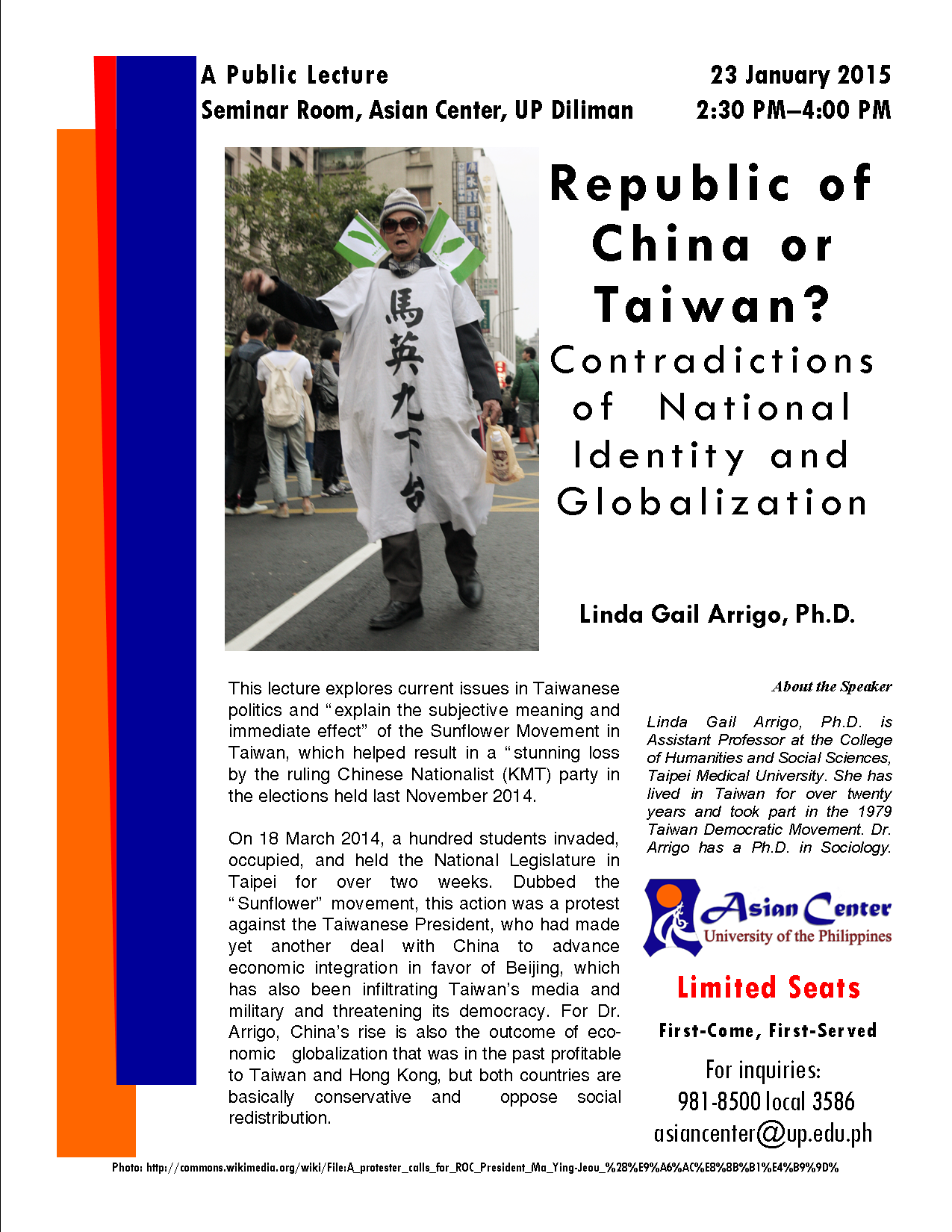 The Asian Center will be hosting a public lecture, “Republic of China or Taiwan? Contradictions of National Identity and Globalization” on Friday, 23 January 2015, 2:30 p.m. to 4:00 p.m. at the Seminar Room, Hall of Wisdom, GT-Toyota Asian Cultural Center, Asian Center, University of the Philippines Diliman.
The Asian Center will be hosting a public lecture, “Republic of China or Taiwan? Contradictions of National Identity and Globalization” on Friday, 23 January 2015, 2:30 p.m. to 4:00 p.m. at the Seminar Room, Hall of Wisdom, GT-Toyota Asian Cultural Center, Asian Center, University of the Philippines Diliman.
In this lecture, Linda Gail Arrigo, Ph.D. Assistant Professor at Taipei Medical University, will explore current issues in Taiwanese politics and “explain the subjective meaning and immediate effect” of the Sunflower Movement in Taiwan, which helped result in a “stunning loss by the ruling Chinese Nationalist (KMT) party in the elections held last November 2014.
On 18 March 2014, a hundred students invaded, occupied, and held the National Legislature in Taipei for over two weeks. Dubbed the “sunflower” movement, this action was a protest against the Taiwanese President who had made yet another deal with China to advance economic integration in favor of Beijing, which has also been infiltrating Taiwan’s media and military and threatening its democracy. For Dr. Arrigo, China’s rise is also the outcome of economic globalization that was in the past profitable to Taiwan and Hong Kong, but both countries are basically conservative and oppose social redistribution.
Linda Gail Arrigo, Ph.D. is Assistant Professor at the College of Humanities and Social Sciences, Taipei Medical University. She has lived in Taiwan for over twenty years and took part in the 1979 Taiwan Democratic Movement. Dr. Arrigo completed her doctorate in sociology in 1996.

